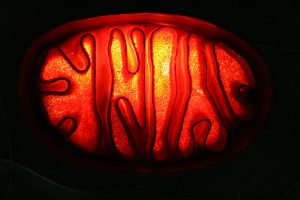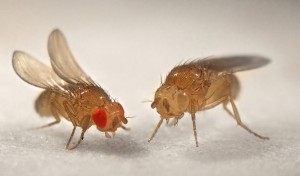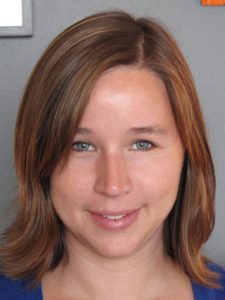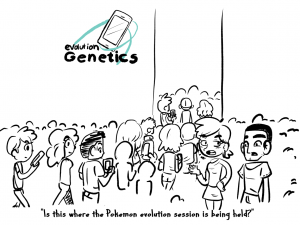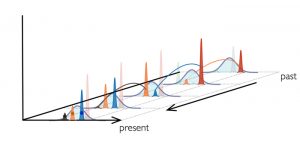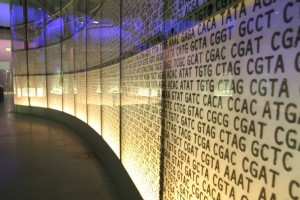Enter your address to receive notifications about new posts to your email.
Community Voices
-
Community Voices
#TAGC16 Shorts: Keeping histone marks leads to losing marbles
#TAGC16 Shorts are brief summaries of presentations at The Allied Genetics Conference, a combined meeting of seven genetics research communities held July 13-17, 2016 in Orlando, Florida. One of the earliest events in development is the switch to self sufficiency. Soon after an egg is fertilized, the new individual must activate its genome and cease…
-
Community Voices
#TAGC16 Shorts: Mitonuclear interactions
Guest post by Mathieu Hénault. #TAGC16 Shorts are brief summaries of presentations at The Allied Genetics Conference, a combined meeting of seven genetics research communities held July 13-17, 2016 in Orlando, Florida. Most traits are controlled by more than one gene, and interactions between the effects of genes (GxG) can modify phenotypes in a non-additive…
-
Community Voices
#TAGC16 Shorts: The fate of duplicates
Guest post by Caroline Berger. #TAGC16 Shorts are brief summaries of presentations at The Allied Genetics Conference, a combined meeting of seven genetics research communities held July 13-17, 2016 in Orlando, Florida. You might remember the flickering cilia of little Paramecia from the classroom, where these ciliate species can be easily observed with a binocular…
-
Community Voices
#TAGC16 Shorts: Gut microbes influence alcohol sensitivity
Guest post by Deepika Vasudevan. #TAGC16 Shorts are brief summaries of presentations at The Allied Genetics Conference, a combined meeting of seven genetics research communities held July 13-17, 2016 in Orlando, Florida. The microbes in our guts seem to affect almost every aspect of human health, from the obvious (e.g. metabolism1) to the unexpected (e.g.…
-
Community Voices
New Faculty Profile: Jessica Feldman
New Faculty Profiles showcase GSA members who are establishing their first independent labs. If you’d like to be considered for a profile, please complete this form on the GSA website. Jessica Feldman Assistant Professor (Since 2014) Stanford University Lab website Research program: In my lab we study how cells become properly patterned during development. In…
-
Community Voices
#TAGC16 Shorts: What if gene expression timing matters more than abundance?
Guest post by Christian R. Landry. #TAGC16 Shorts are brief summaries of presentations at The Allied Genetics Conference, a combined meeting of seven genetics research communities held July 13-17, 2016 in Orlando, Florida. When building new phenotypes, evolution often draws on mutations of the intricate mechanisms that regulate gene expression. If such regulatory mutations are…
-
Community Voices
Seventh Heaven
The recent Brexit vote may initiate a break up of the European Union and a split in the United Kingdom. Violence and war is tearing apart the Middle East. Racial tensions are flaring up in the U.S. But in Florida two weeks ago, 3,000 model organism geneticists proved that separate communities not only can co-exist…
-
Community Voices
#TAGC16 Shorts: the bursting bubble of harmful mutations
Guest post by Tyler Kent. #TAGC16 Shorts are brief summaries of presentations at The Allied Genetics Conference, a combined meeting of seven genetics research communities held July 13-17, 2016 in Orlando, Florida. Purging harmful mutations is the most common task of natural selection. In non-recombining populations this background selection process represents the “survival of the…
-
Community Voices
The Alliance of Genome Resources needs your input!
Guest post by the Alliance of Genome Resources. If you want to help the Alliance please take a short survey at: https://www.surveymonkey.com/r/GSA-AllianceSurvey Six of the founding members of the Alliance of Genome Resources (Saccharomyces Genome Database, WormBase, FlyBase, Zebrafish Model Organism Database, Mouse Genome Database and the Gene Ontology Consortium) attended GSA’s The Allied Genetics…
-
Community Voices
#TAGC16 Shorts: evolution on ecological timescales
Guest post by Julia Kreiner. #TAGC16 Shorts are brief summaries of presentations at The Allied Genetics Conference, a combined meeting of seven genetics research communities held July 13-17, 2016 in Orlando, Florida. A common perception of evolution sees only slow and consistent genetic change over thousands of generations. But geneticists are increasingly shedding light on…
-
Community Voices
#TAGC16 Shorts: ancient roots of arthritis
#TAGC16 Shorts are brief summaries of presentations at The Allied Genetics Conference, a combined meeting of seven genetics research communities held July 13-17, 2016 in Orlando, Florida. Elbows, knuckles, and the other synovial joints in your body are mobile marvels of evolution. These joints allow a huge range of possible movements thanks to the presence of…


